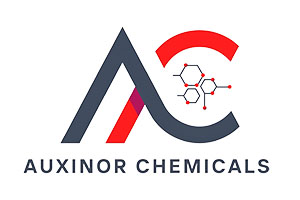Styrene Monomer
Styrene Monomer, a versatile petrochemical substance, serves as a foundational building block for various applications across industries:
Application Areas:
Electrical and Electronic Appliances: Styrene-based plastics are integral components in the manufacturing of electrical and electronic appliances, providing lightweight, durable, and heat-resistant properties essential for housing components and ensuring electrical safety.
Packaging Material: Styrene-derived plastics play a crucial role in packaging materials, offering excellent clarity, impact resistance, and barrier properties. They are widely used in food packaging, beverage containers, and consumer product packaging to preserve freshness and protect contents during transportation and storage.
Insulation: Styrene-based materials are utilized in thermal insulation applications, providing effective heat retention and energy efficiency in buildings, refrigeration systems, and HVAC (heating, ventilation, and air conditioning) units. Expanded polystyrene (EPS) foam, a derivative of styrene monomer, is commonly used in construction for its lightweight and insulating properties.
Automotive Parts: Styrene polymers are utilized in the automotive industry for various applications, including interior trim components, exterior body panels, dashboards, and under-the-hood parts. Styrene-based plastics offer excellent strength-to-weight ratio, impact resistance, and dimensional stability, contributing to enhanced vehicle performance and safety.
Construction Materials: Styrene-based materials find application in construction materials such as pipes, fittings, profiles, and sheets. These materials offer durability, chemical resistance, and ease of fabrication, making them suitable for a wide range of construction applications including plumbing, roofing, cladding, and flooring.
Consumer Goods: Styrene-derived plastics are extensively used in the production of consumer goods such as toys, household appliances, kitchenware, and furniture. These materials offer versatility in design, color, and texture, allowing for the creation of aesthetically pleasing and functional products.
Medical Devices: Styrene-based polymers are utilized in the healthcare industry for manufacturing medical devices and equipment such as syringes, IV tubing, catheters, and diagnostic instruments. These materials offer biocompatibility, sterilizability, and ease of processing, meeting stringent regulatory requirements for medical applications.
Textile and Apparel: Styrene-based materials are employed in textile and apparel applications for producing synthetic fibers and fabrics with desirable properties such as strength, durability, and wrinkle resistance. Styrene-based elastomers are also used in textile coatings and adhesives for enhancing fabric performance and functionality.
Marine and Aerospace: Styrene-based materials find application in marine and aerospace industries for manufacturing lightweight, corrosion-resistant, and high-performance components such as boat hulls, aircraft interiors, and structural panels.
Renewable Energy: Styrene polymers are used in renewable energy applications such as wind turbine blades and solar panel components, where lightweight, durable materials are required to withstand harsh environmental conditions and ensure long-term performance.
Overall, the versatility, durability, and performance characteristics of styrene-based materials make them indispensable across a wide range of industries, contributing to the development of innovative products and solutions that enhance everyday life and drive technological advancements.
Specifications
| Property | Unit | Test Method | Typical Value |
|---|---|---|---|
| Styrene Purity | Wt.% | ASTM D5135/ D7504 | 99.8 Minimum |
| Aldehydes as Benzaldehyde | Wt.% | ASTM D2119/ D7704 | 0.01 Maximum |
| Peroxides as H2O2 | ppm | ASTM D2340 | 50 Maximum |
| Polymer | ppm | ASTM D2121 Method A | 10 Maximum |
| Inhibitor | ppm | ASTM D4590 | 10 - 15 |
| Color | Pt/Co scale | ASTM D5386 | 15 Maximum |
| Ethylbenzene | ppm | ASTM D5135/ D7504 | 500 Maximum |
| Benzene | ppm | ASTM D6229 | 1 Maximum |
